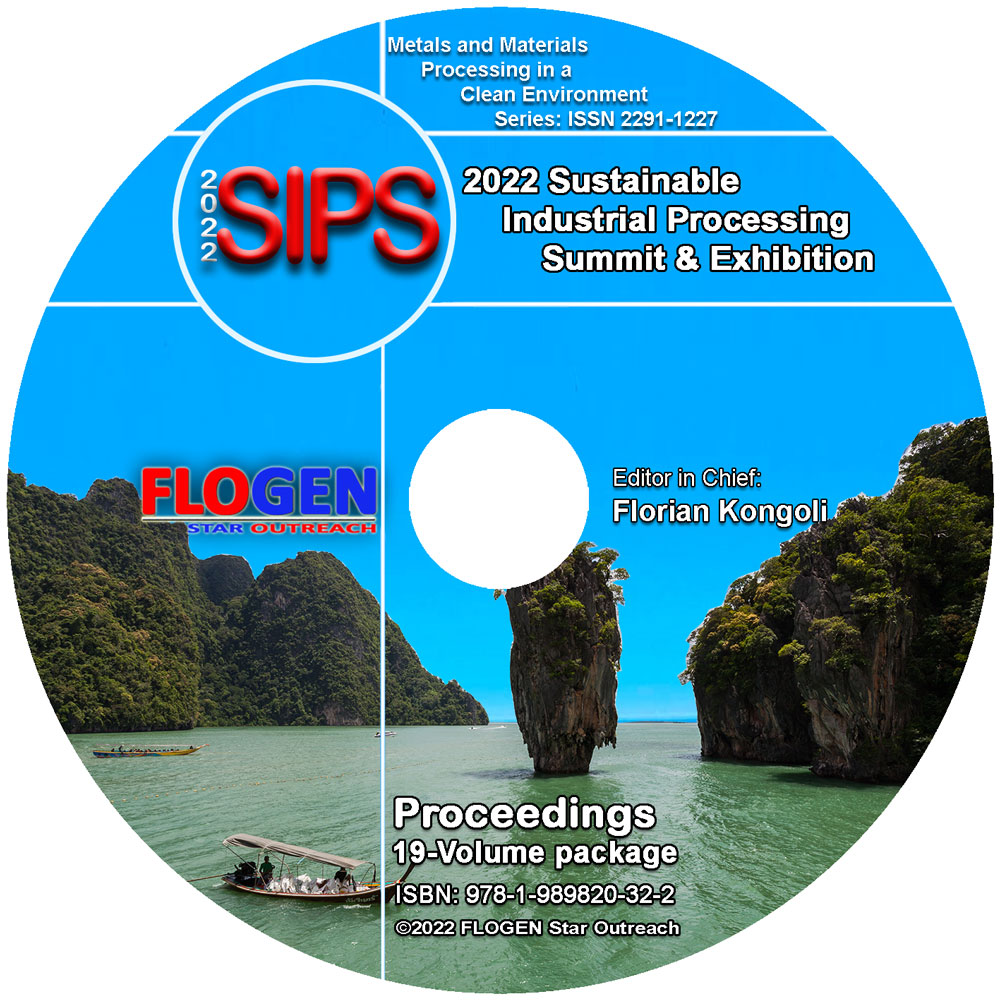2022-Sustainable Industrial Processing Summit
SIPS2022 Volume 3
Horstemeyer Intl.Symp.
Multiscale Materials Mechanics & Applications
| Editors: | F. Kongoli,E. Aifantis, A, Konstantinidis, D, Bammann, J. Boumgardner, K, Johnson, N, Morgan, R. Prabhu, A. Rajendran |
| Publisher: | Flogen Star OUTREACH |
| Publication Year: | 2022 |
| Pages: | 382 pages |
| ISBN: | 978-1-989820-38-4(CD) |
| ISSN: | 2291-1227 (Metals and Materials Processing in a Clean Environment Series) |

CD shopping page
A Multiscale Inelastic Internal State Variable Corrosion Model
Mark Horstemeyer1;1LIBERTY UNIVERSITY, Lynchburg, United States;
Type of Paper: Regular
Id Paper: 563
Topic: 1
Abstract:
We present a corrosion Internal State Variable (ISV) damage model based upon the Integrated Computational Materials Engineering (ICME) hierarchical multiscale paradigm. Structure-property experiments for magnesium alloys were used where the only inputs are the volume fractions of each element of the Periodic Table. This macroscale ISV corrosion model finds its basis in Horstemeyer’s mechanical damage model, which includes three separate ISVs for damage nucleation, growth, and coalescence and Walton’s inclusion of corrosion, which introduces five new ISVs for pit nucleation, growth, and coalescence, along with general corrosion and intergranular corrosion. While Walton’s corrosion ISVs were phenomenological in nature, we develop herein a multiscale physical basis for the corrosion ISVs. Parameters for the macroscale corrosion ISVs were garnered from the mesoscale Butler-Volmer equations. Pure magnesium with differing amounts of aluminum were used in corrosion tests to exemplify the different pitting, general corrosion, and intergranular corrosion rates, and the macroscale ISV model was calibrated with said data, in which the only inputs to the model are the volume percent of elements of magnesium and aluminum. Although magnesium alloys were used to motivate and calibrate the model, the model is abstract enough to possibly capture other material systems as well.